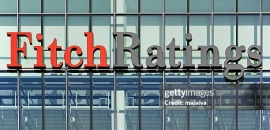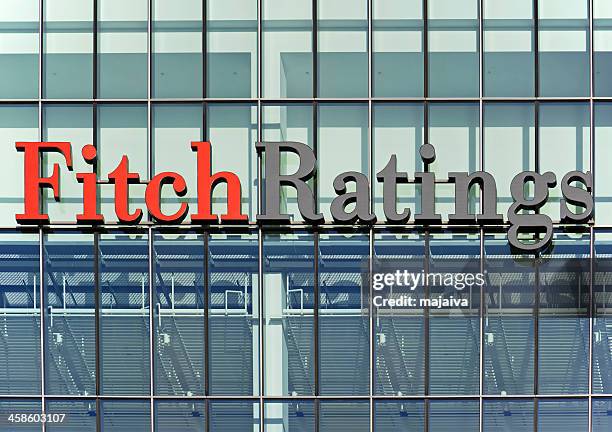
Fitch Raises Ghana’s Economic Growth Forecast
Oct 21, 2025
by Chris Benyah Oct 21, 2025

Fitch Raises Ghana's 2025 Growth Forecast to 4.9% Amid Economic Recovery
October 21, 2025 International ratings agency Fitch Solutions has upgraded Ghana's economic growth projection for 2025 to 4.9%, up from its earlier estimate of 4.2%, citing improving macroeconomic stability, declining inflation, and a relatively stable cedi.
The upward revision, contained in Fitch's September 2025 Monthly Outlook, signals growing investor confidence in Ghana's economic recovery trajectory despite ongoing challenges including fiscal consolidation, elevated interest rates, and stagnant oil production.
Strong First Quarter Performance Drives Optimism
The UK-based research firm pointed to Ghana's robust first quarter performance as a key factor behind the revised forecast. The economy expanded by 5.3% year-on-year during the period, propelled largely by strong agricultural output.
According to recent data from the Ghana Statistical Service (GSS), economic growth moderated to 4.5% in July 2025, down from 8.3% recorded in the same month last year. However, the agricultural sector remained the standout performer, registering 8.0% growth compared to just 2.4% in July 2024.
Inflation Expected to Hit Four-Year Low
Fitch projects that inflation will decline to 8.0% by the end of 2025, down from 11.5% in August, marking the lowest rate in four years. The combination of exchange rate stability and lower global energy prices is expected to enhance consumer confidence and stimulate domestic demand.
The anticipated easing of price pressures has created conditions for potential monetary policy adjustments, which could provide further support to economic activity.
Positive Medium-Term Outlook
Looking ahead, Fitch expects Ghana's growth to stabilize at around 5.0% in 2026, supported by falling inflation, anticipated monetary easing by the Bank of Ghana, and increased public expenditure as the country's IMF-supported economic program nears completion.
The forecast suggests that as fiscal constraints ease and interest rates decline, both public and private sector investment activity could accelerate, providing additional momentum to the recovery.
Contrasting Projections
Fitch's upgraded forecast stands above both the International Monetary Fund's 4.0% growth projection for 2025 and the government's budget target of 4.4%, highlighting divergent views among major economic forecasters about Ghana's near-term prospects.
The more optimistic Fitch projection reflects renewed confidence in Ghana's economic management, anchored on improving price stability, resilient agricultural performance, and enhanced policy credibility following the country's debt restructuring and IMF program implementation.
Cautionary Notes
Despite the positive outlook, Fitch emphasized that sustaining the growth momentum will require continued fiscal discipline, implementation of structural reforms, and maintenance of exchange rate stability.
The research firm warned that any deviation from fiscal consolidation targets or reversal of recent macroeconomic gains could undermine investor confidence and derail the recovery process.
Economic Context
Ghana's economy has been on a gradual recovery path following a severe economic crisis in 2022 that led to a debt default and an IMF bailout program. The government has since implemented fiscal reforms, restructured its domestic and external debt, and worked to stabilize the macroeconomic environment.
The improving growth outlook, coupled with declining inflation and currency stability, suggests that these reform efforts are beginning to yield positive results, although challenges remain in areas such as debt sustainability, revenue mobilization, and economic diversification.
The agricultural sector's strong performance has been particularly crucial, providing employment and income support to a significant portion of the population while contributing to food security and export earnings.
As Ghana approaches the end of its current IMF program, the ability to maintain macroeconomic stability while supporting growth will be critical to ensuring the sustainability of the economic recovery and improving living standards for Ghanaians.

Oct 21, 2025